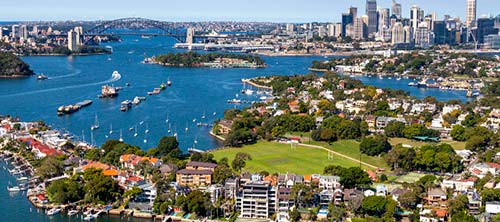Feeling overwhelmed and wondering whether you need a property manager? If you’ve never worked with a property management company before, one of your foremost questions would be: What does a property manager do?
Beyond rent collection and staying on top of maintenance work, there’s so much more that defines a property manager’s job description. Good property managers have an in-depth understanding of the market and their priority is to optimise rental yield whilst also ensuring capital appreciation. If they have the experience, they can act as your property advisory service, not just a rent collector.
But if you’re unsure whether you need one right now, perhaps knowing about the functions of property management can help you decide.
1. Maximising your investment
One of the most important property manager skills is ensuring rental yields and capital gains are optimised.
A good property manager won’t just be turning in the rent collection promptly and fixing things, but also, will keep a close eye on the market. Your PM will advise you on when it’s the right time to increase rents and give you fair warning when it is too risky to do so.
They’ll have a good grasp of market fundamentals, so if you’re planning to expand your investment portfolio, they can do the analysis for you and make some recommendations. To take one example, if you own an unrenovated Balmain property on which you don’t wish to spend more money, your property manager will evaluate the property and make recommendations such as selling at the right time and reinvesting in another property that could deliver higher yield or capital growth.
Instead of seeing this as a negative, a good property manager will use the time for making improvements or enhancements so your investment property can command a higher rent.
2. Finding, screening and retaining good tenants
Efficient property managers know the value of finding and retaining good tenants.
Screening applications is a time-consuming and tedious affair. Your property manager will take the time to go through tenant applications, and conduct background and reference checks. These are necessary to ensure you only get good tenants who will pay on time, stay for the length of (or even renew) the tenancy agreement and take care of your investment property.
3. Keeping up with market trends
Seasoned property managers will have their finger on the tenant market pulse.
They’ll know what’s on-trend in terms of renting – what tenants look for and the kinds of upgrades that can add value to your investment property. These include making it pet-friendly, providing high-speed internet connectivity, energy-efficient appliances or eco-friendly upgrades (e.g. solar panels) and safety and security measures – all of which tenants are willing to pay a premium for.
4. Conducting routine inspection and maintenance tasks
An efficient property manager ensures your property remains in good condition and tenants happy by checking for any maintenance issues and concerns.
If tenants report problems, your property manager would respond to these concerns promptly. They would also schedule routine inspections and report any maintenance issues to you. They’ll coordinate tenant and maintenance crew or trades’ schedules to ensure necessary work is done promptly.
So, is a property manager worth the cost?
Managing your investment property (or properties if you have more than one) can become a part-time job. It’s plenty of work and you won’t have the most up-to-date real estate market information.
Our property managers can do so much to maximise your investment, with a lot less stress on your part. They’ll also free up more time for you to spend on things that matter.
Looking for help selling your home or renting your investment property? Our team at Belle Property Balmain support homeowners across Balmain, Balmain East, Birchgrove, Rozelle and Lilyfield. Feel free to get in touch for a no-obligation discussion or property appraisal.




